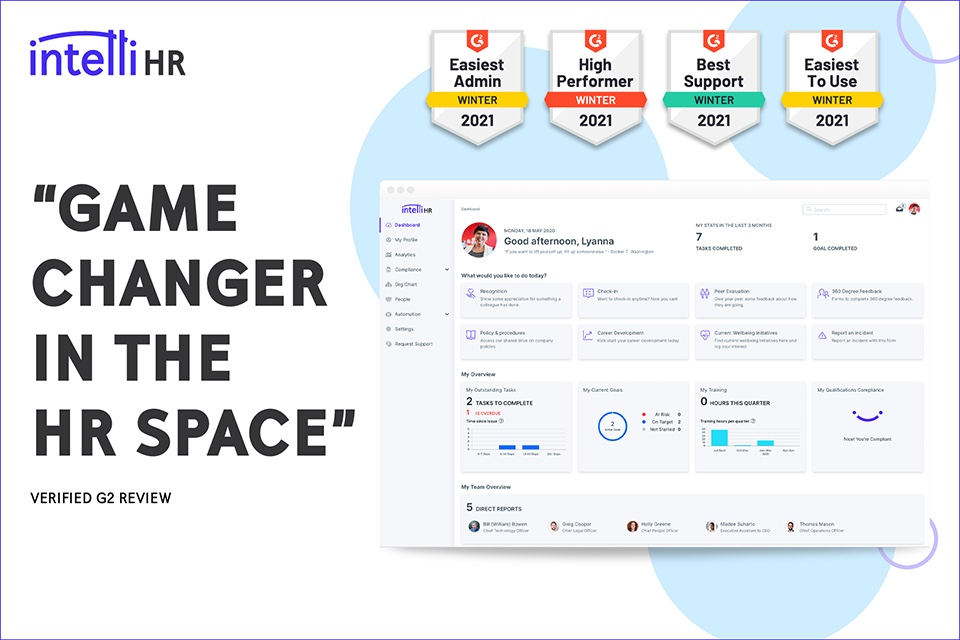By intelliHR
Flexible work is no longer the ‘future of work’, it’s happening right now and the challenge for HR and leaders is to effectively manage newly hybrid teams. Here are three important considerations for managing teams with employees working in the office and remotely.
- Communicate frequently, openly and consistently
Establish a communication rhythm and norms
Regular whole-of-organization, team and 1:1 meetings ensure information is properly communicated and employees feel seen, heard and involved.
It’s also useful to create norms for appropriate communication to guide behavior and processes for hybrid teams e.g. checking-in and out for the day on Slack or Zoom
Regardless of location, each employee joins a video call on their own device, and video is on.
Systematize and automate
We’re only human and sometimes things slip through the cracks, which is why it’s helpful to systematize and automate tasks like check-in pulses or surveys so they’re not forgotten. These can provide powerful insights into wellness, satisfaction and any issues with your hybrid teams.
Not everything should be automated though! Face-to-face conversations still have a place (even on video) and make sure you act on feedback received to build trust and show you care.
- Make performance a process
How do you manage performance when you can’t see someone in front of you every single day? The same as when they’re in the office.
If you’ve set clear goals, expectations and given regular feedback through continuous performance processes, then having a conversation about poor performance is much easier (if needed at all!).
It’s also important not to forget the high performers who can often scoot under the radar. intelliHR helps you stay on top of performance with goal setting, tracking, and alerts, so that you can celebrate and recognize achievements when goals are met, or initiate a performance management plan if not.
- Develop soft leadership skills
Lastly, a manager of a hybrid team needs to have excellent emotional intelligence, and communication skills to pick up on more subtle cues. While they don’t come naturally to everyone, these soft skills aren’t impossible to develop. Using intelliHR’s employee development tools, you can see how skills are distributed across your organization and where you might need to invest in training to develop future leaders.
Want a HR platform that helps you manage your people no matter where in the world they are?
intelliHR empowers HR, leaders and managers to enhance performance, culture, engagement and retention. With built-in HRIS and powerful real-time analytics, see how the platform works today.
To learn more, visit www.intellihr.co.









